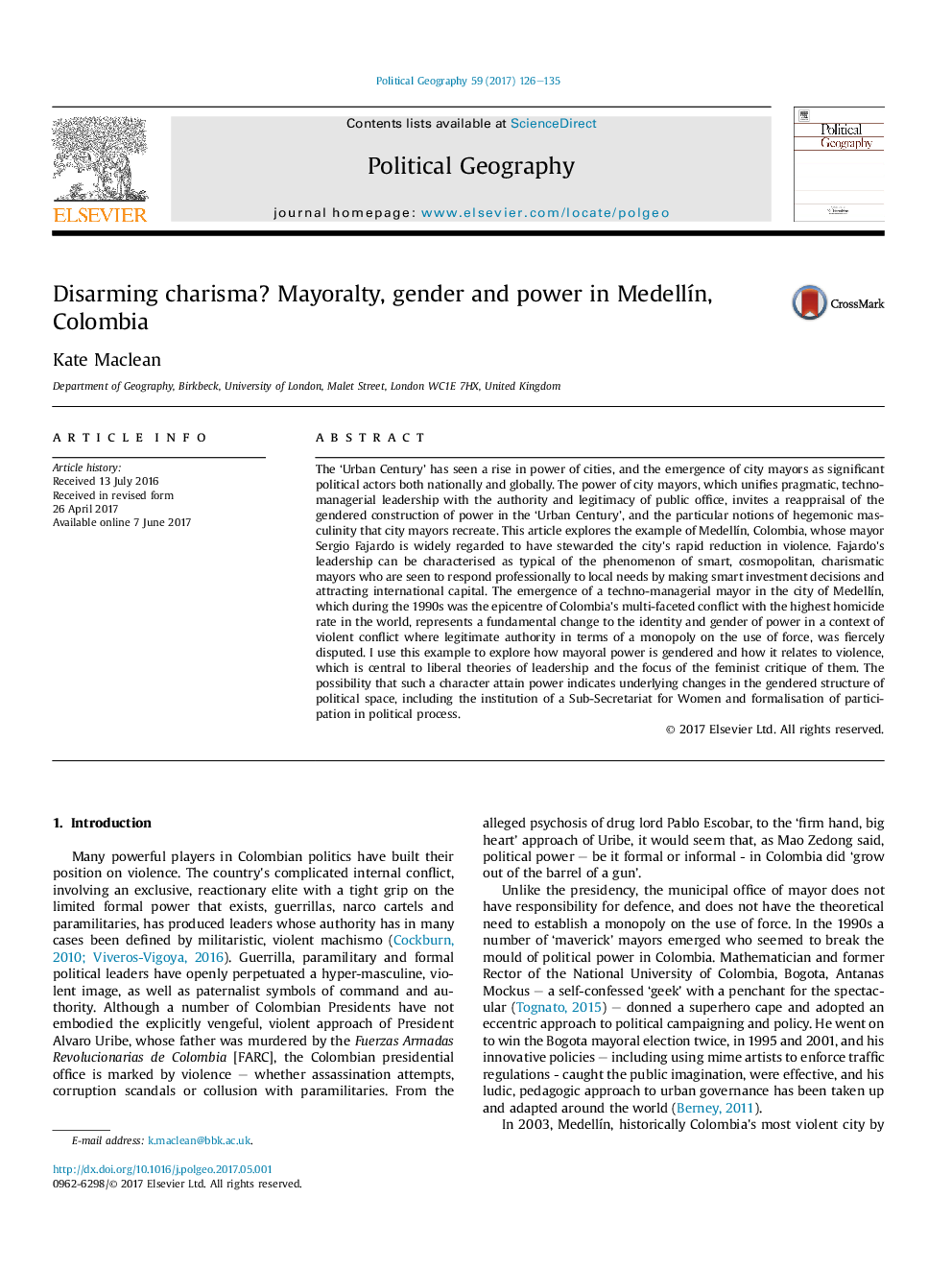| Article ID | Journal | Published Year | Pages | File Type |
|---|---|---|---|---|
| 5118460 | Political Geography | 2017 | 10 Pages |
The 'Urban Century' has seen a rise in power of cities, and the emergence of city mayors as significant political actors both nationally and globally. The power of city mayors, which unifies pragmatic, techno-managerial leadership with the authority and legitimacy of public office, invites a reappraisal of the gendered construction of power in the 'Urban Century', and the particular notions of hegemonic masculinity that city mayors recreate. This article explores the example of MedellÃn, Colombia, whose mayor Sergio Fajardo is widely regarded to have stewarded the city's rapid reduction in violence. Fajardo's leadership can be characterised as typical of the phenomenon of smart, cosmopolitan, charismatic mayors who are seen to respond professionally to local needs by making smart investment decisions and attracting international capital. The emergence of a techno-managerial mayor in the city of MedellÃn, which during the 1990s was the epicentre of Colombia's multi-faceted conflict with the highest homicide rate in the world, represents a fundamental change to the identity and gender of power in a context of violent conflict where legitimate authority in terms of a monopoly on the use of force, was fiercely disputed. I use this example to explore how mayoral power is gendered and how it relates to violence, which is central to liberal theories of leadership and the focus of the feminist critique of them. The possibility that such a character attain power indicates underlying changes in the gendered structure of political space, including the institution of a Sub-Secretariat for Women and formalisation of participation in political process.
